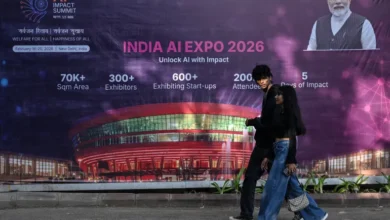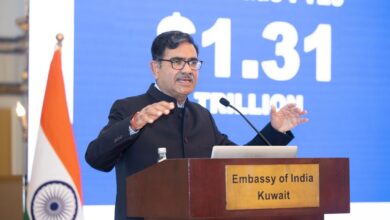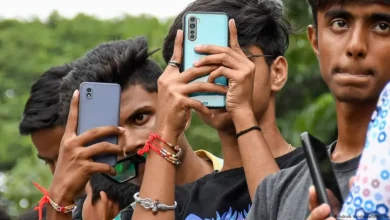India’s AI achievements and global positioning in a future-focused transformation
India has rapidly emerged as a global leader in the field of artificial intelligence (AI), making it an incredibly important market for AI development and innovation. With a large tech-savvy population, increasing investment in AI research, and government initiatives, India is playing a pivotal role in the AI revolution worldwide.

Artificial Intelligence (AI) has transitioned from a futuristic vision to a present-day reality, redefining industries and unlocking new possibilities across sectors in India, enabling the operational efficiencies, driving innovation and catalysing economic and social transformation. AI is helping India to shape its future from agriculture to manufacturing and the country is emerging as a global leader in the AI revolution.
India’s AI Vision: A Strategic Transformation
India’s AI journey has been marked by bold initiatives, government investments, and strategic collaborations aimed at positioning the country as a global powerhouse in AI development. Recognizing AI’s potential to contribute to inclusive development and economic growth, India has set out to harness its power for societal benefit. Central to this effort is the India AI Mission, a ground breaking initiative by the Government of India aimed at advancing AI technology and applications across sectors.
The India AI Mission has been given a major boost with the Cabinet’s approval of over Rs 10,300 crore in 2024 (USD 1.14 billion), a significant investment set to enhance the nation’s AI ecosystem over the next five years. This financial outlay will support crucial components of the mission, including the India AI Compute Capacity, India AI Innovation Centre (IAIC), AI datasets platform, and AI education programs, among others. The primary aim is to build a self-sustaining, globally competitive AI ecosystem, which will fuel India’s digital economy and ensure its leadership in shaping the future of AI.
Building AI ecosystems across the country
A cornerstone of India’s AI ambition lies in its focus on decentralizing AI innovation. The creation of AI Catalysts, Centres of Excellence, and initiatives targeting rural and Tier 2 and Tier 3 cities will promote inclusive development by empowering AI innovators across the nation. This focus on regional AI hubs will equip 100,000 developers with the necessary tools to innovate through hackathons, community building, and AI marketplace initiatives.
The India AI Compute Capacity aims to deploy over 10,000 Graphics Processing Units (GPUs) to establish a cutting-edge AI infrastructure capable of supporting large-scale applications. The investment will ensure that India has the computational power to fuel both indigenous AI models and global research efforts. Moreover, the establishment of the India AI Datasets Platform will ensure that high-quality public sector datasets are accessible, fuelling AI-driven research and governance.
India’s push for AI education is evident in its focus on expanding AI learning pathways. Programs like FutureSkills will increase accessibility to AI education by offering graduate and postgraduate programs and establishing data and AI labs across major cities and smaller towns. This widespread dissemination of AI knowledge is designed to empower young talent, especially in regions that may have traditionally lagged behind in technological advancements.
Key milestones in India’s AI development:
- 2016 – Launch of the NITI Aayog’s National Strategy for Artificial Intelligence, setting the groundwork for AI adoption.
- 2018 – India’s first AI-powered chatbot, Meghraj, launched by the Indian government for tax-related services.
- 2019 – The launch of the AI for All initiative by NITI Aayog to democratize AI education across the country.
- 2020 – The establishment of the National Centre for Artificial Intelligence (NCAI) by NITI Aayogto drive AI research.
- 2021 – Release of the AI Research, Innovation, and Knowledge initiative to enhance AI capabilities in healthcare, agriculture, and infrastructure.
- 2021 – India’s AI-based I-Help app introduced to aid farmers with weather forecasts, crop suggestions, and market prices.
- 2022 – Introduction of the Artificial Intelligence (AI) Policy Framework aimed at accelerating AI innovation and investment in key sectors.
- 2023 – India launched the Digital India AI for Good program to promote AI solutions for social welfare, sustainability, and public health.
- 2023 – The Indian government established the AI Research and Development Centre in collaboration with global tech firms to boost innovation and collaboration in AI technologies.
- 2024 – India’s AI-powered Healthcare Surveillance System was implemented to enhance real-time monitoring and response in healthcare crises.
Collaborative partnerships and international recognition
India’s AI strategy emphasizes the importance of collaboration between government, industry, and academia. By forming partnerships with leading tech companies, India is accelerating the adoption of AI. For example, Microsoft’s partnership with India AI to skill 500,000 individuals—including students, educators, developers, and women entrepreneurs—by 2026 is a major step in building an AI-ready workforce. These collaborative efforts align with the global drive for responsible AI development, emphasizing safety, ethics, and equity in deploying AI technologies.
The establishment of an AI Safety Institute in India further underscores the country’s commitment to responsible AI development. This initiative will ensure that AI systems are deployed in a manner that prioritizes transparency, accountability, and ethical considerations. By working with international stakeholders, India is positioning itself as a responsible leader in the AI space.
India’s growing influence in the global AI space
Globally, India is making significant strides in AI development and application, not just in comparison to leading AI nations such as the United States and China, but also as a competitor in shaping AI’s future. While the US and China dominate in terms of investment and research, India’s focus on inclusive development and AI applications across diverse sectors gives it a unique edge.
India’s AI ecosystem is characterized by its emphasis on fostering AI talent and building self-reliant infrastructure. The government’s large-scale funding and commitment to AI education and research place India in direct competition with global AI leaders. The country’s focus on ethical and responsible AI deployment ensures that its AI revolution is not just about technological prowess but also about safeguarding public welfare.
The road ahead for India’s AI
India’s AI transformation is only just beginning, but the country has already set the stage for a future where AI plays a pivotal role in the nation’s economic, social, and technological landscape. With the strategic investments in AI infrastructure, innovation, education, and governance, India is charting a path toward global leadership in AI.
In conclusion, India’s recent initiatives like the IndiaAI Mission show a strong government support. India has a growing pool of AI researchers and scientists, with increasing numbers of research publications and patents. India’s AI adoption in industries is growing rapidly, building critical infrastructure, like GPU-based computing power, to strengthen its AI capabilities. India’s strategic investments, policy support, and growing AI talent pool position it to a prominent player on the global stage.
India’s AI achievements underscore its commitment to using technology as a tool for inclusive growth and national transformation. By fostering collaboration, nurturing talent, and prioritizing ethical development, India is not only advancing its own AI capabilities but also contributing to the global AI discourse.
Going ahead, the future of AI in India is bright, and the country’s evolving role in shaping AI technology will undoubtedly have a strong support for its journey towards Viksit Bharat.











